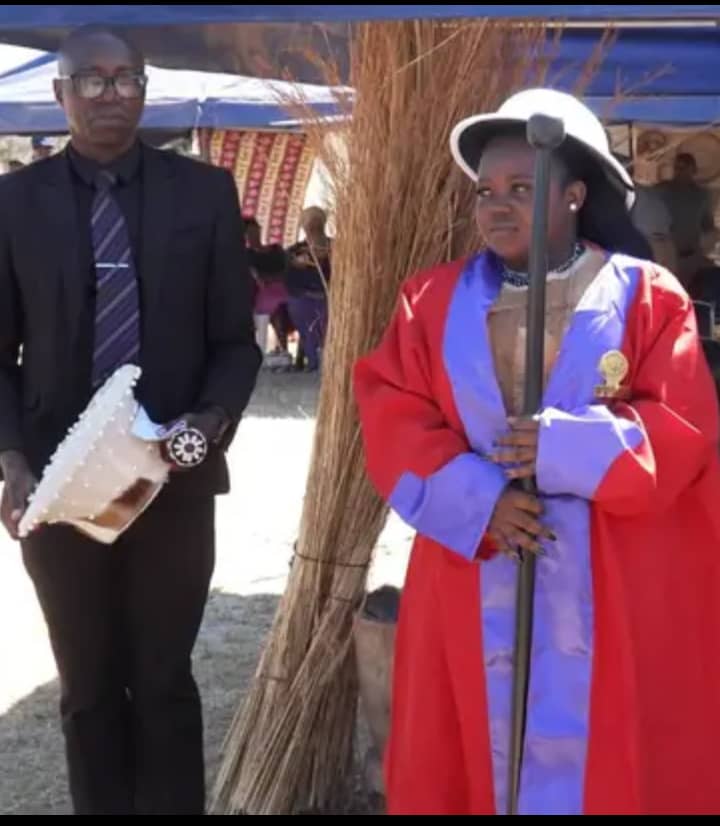Subtotal $0.00

In a landmark stride for gender representation in traditional leadership, the recent enthronement of Princess Silibaziso Mathe as Chief Mvuthu in Jambezi and Princess Zanele Khulumalo as regent Chief Mabhikwa Khumalo in Lupane has ignited a fiery spectrum of reactions across Matabeleland North. While some laud this historic breakthrough, others vehemently oppose it, rooted deeply in longstanding traditional convictions.
The Zimbabwe Gender Commission has fervently praised the appointments, underscoring the critical importance of gender parity in leadership roles. Obert Matshalaga, Vice Chairperson of the commission, declared, “The law is unequivocal; it does not discriminate or exclude females from ascending to chieftaincy. We are witnessing a transformative shift as women step decisively into leadership positions. They are equal citizens, deserving identical opportunities as men.”
Conversely, the traditionalist worldview remains profoundly entrenched within the region. Calisus Ndiweni, a prominent custodian of tradition, articulated his apprehensions regarding the appointments, asserting, “According to the sacred values of the Ndebele (Nguni), it is a profound taboo for a woman to occupy the Ubuduna seat. Women are deemed impure, and permitting them to lead fundamentally undermines our cultural heritage.”

This perspective resonated with Gogo Mavis Mabhena from Jambezi, who voiced opposition despite her own gender. “Though I am a woman, I contend that chieftainship must remain a male preserve. Our traditions dictate that leadership is not the domain of women. This transcends personal views; it is about safeguarding our identity and values as proud Ndebele people,” she asserted emphatically.
On the other hand, some community members view the evolving landscape as an imperative for redefining entrenched cultural norms. Headman Mthenjwa Khumalo remarked, “The times are irrevocably changing, and we must adapt accordingly. Citizens ought to abide by national laws and statutes concerning succession. Gender equality is not merely a contemporary trend; it is an inalienable right that commands universal respect.”
The clash of perspectives highlights a broader societal struggle, juxtaposing tradition against modernity, particularly concerning women’s roles in leadership. While many acknowledge the necessity of preserving cultural values, the swelling momentum for gender equality is impossible to ignore.
In a region where ancestral norms have long dictated leadership structures, the installation of female chiefs signals a potential paradigm shift in societal attitudes. Advocates argue that female leadership can usher in fresh perspectives and innovative solutions to persistent community challenges. “Women bring unique experiences and insights crucial for effective governance,” Matshalaga emphasized. “Their inclusion promises to enrich our traditional governance systems rather than diminish them.”
In contrast, detractors warn that such radical changes risk eroding the fabric of their cultural identity. Ndiweni cautioned, “Allowing women to lead threatens to unravel our traditions. It is imperative that we remain unwavering in our cultural practices, as they define our very essence.”
The debate surrounding Chiefs Mathe and Khulumalo’s appointments has sparked fervent discussions not only in Matabeleland North but also across Zimbabwe. As communities wrestle with the profound implications of these changes, the path forward will necessitate ongoing dialogue and negotiation between steadfast traditionalists and resolute advocates for gender equality.
As the nation navigates its evolution, these female chiefs’ appointments may well serve as a pivotal litmus test of how far Zimbabwean society is willing to embrace progress while honoring its rich heritage. Whether the voices of tradition will prevail or if the tide of gender equality will inaugurate a new era of inclusive leadership remains an unfolding story.
The future of chieftaincy in Matabeleland North hangs in delicate balance as the community navigates the intricate intersection of reverence for its storied past and the promise of a more inclusive future.









